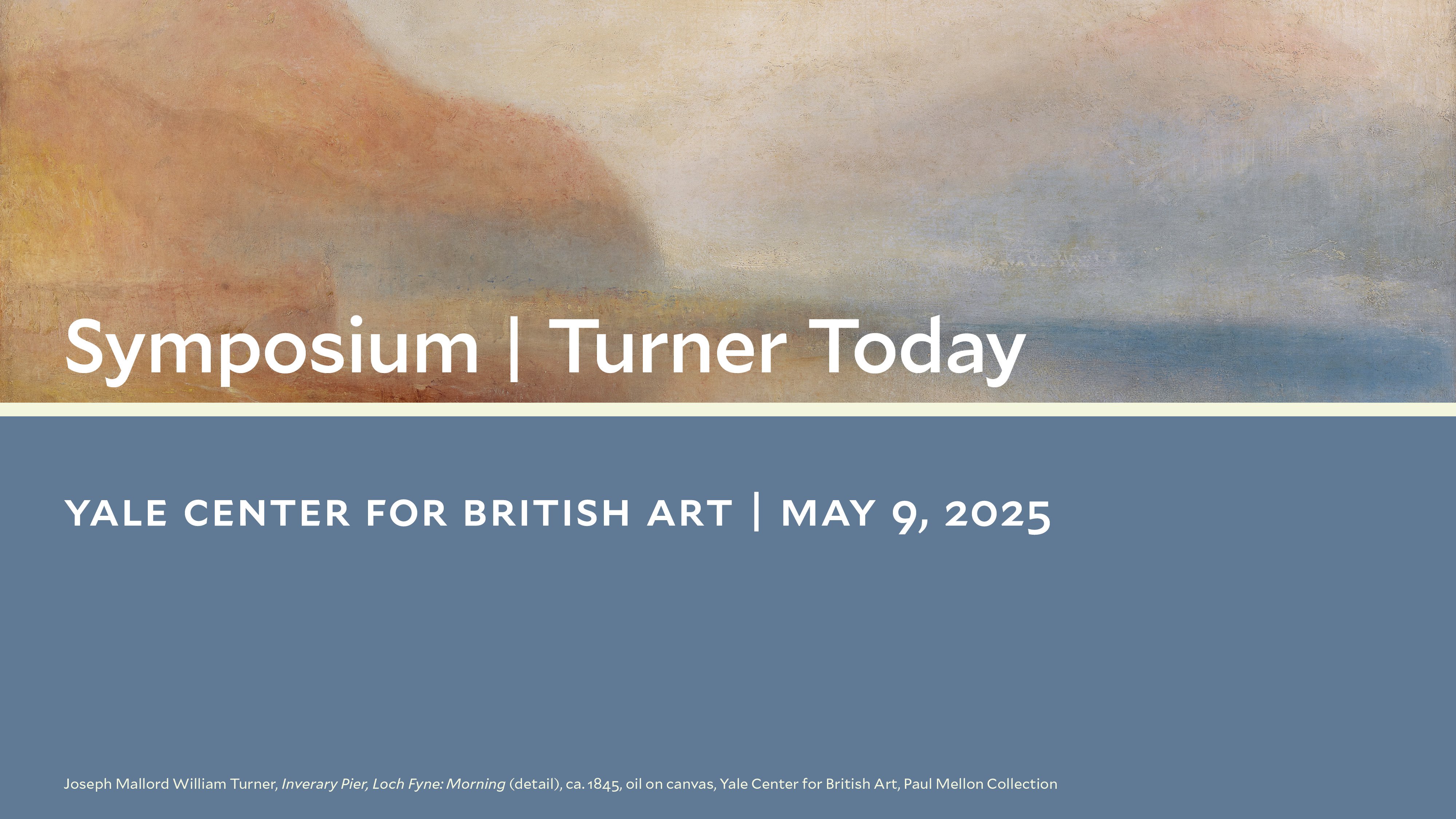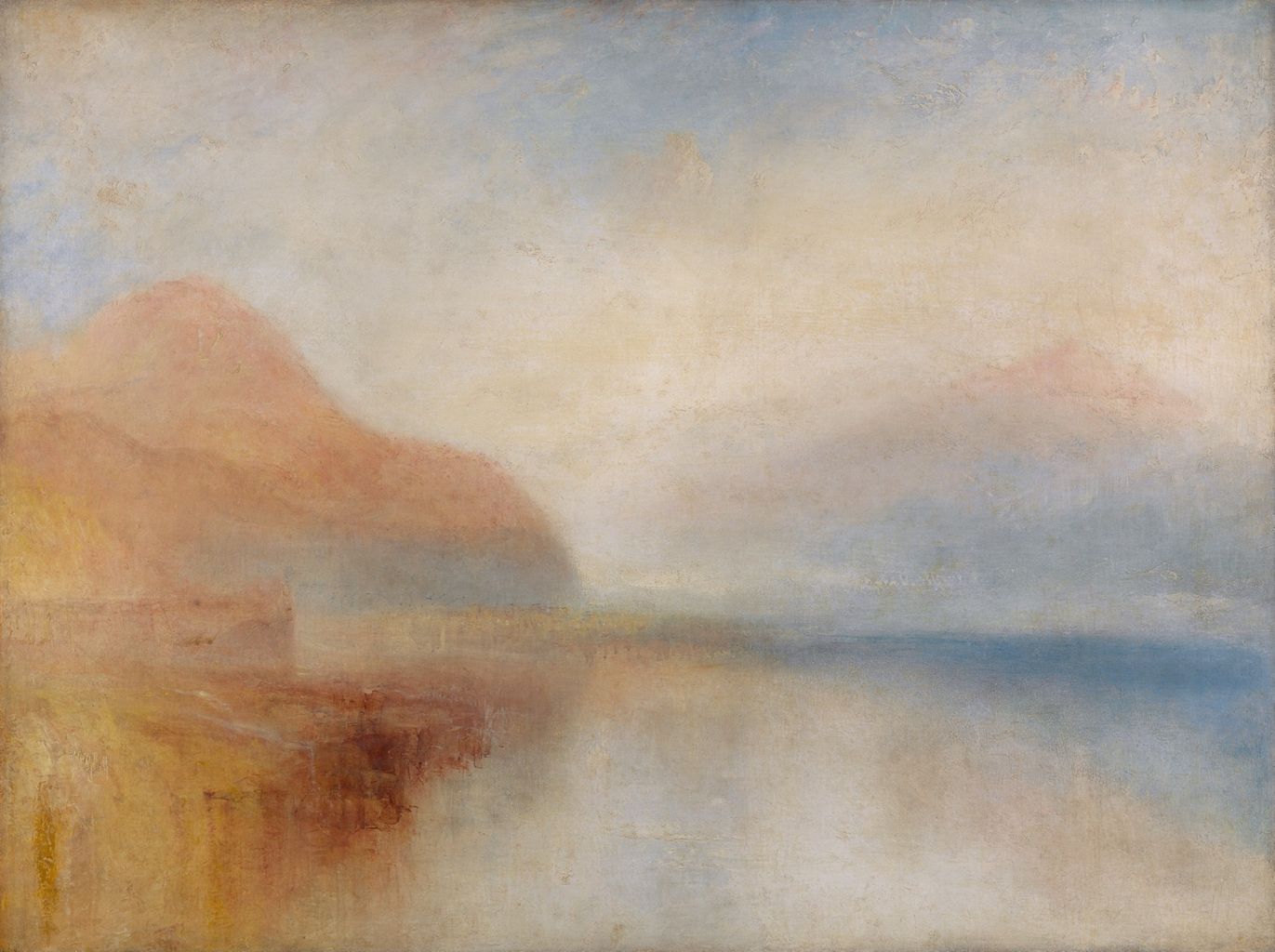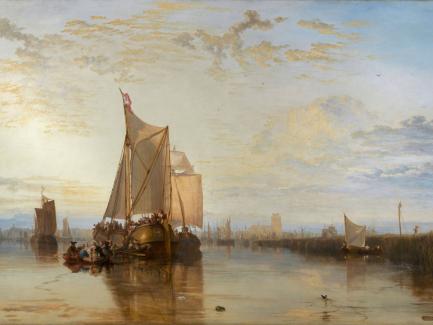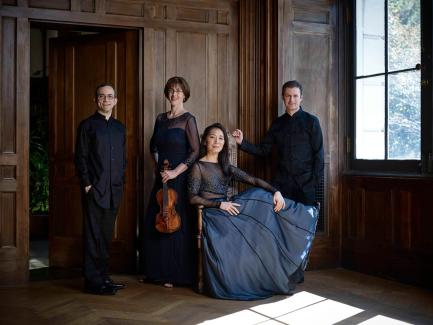The dramatic landscapes of J. M. W. Turner continue to enthrall audiences across the globe, more than two centuries after the artist’s birth. Organized in conjunction with the Yale Center for British Art’s exhibition J. M. W. Turner: Romance and Reality, this symposium invites scholars and curators from Canada, the United States, and the United Kingdom to explore the multiple ways that Turner’s oeuvre speaks to our present moment, from its relationship to contemporary visual art to its role in framing conversations about climate change and resource extraction. What exciting and new possibilities exist for interpreting and sharing Turner’s work in 2025?
The symposium is free and open to the public. It will be held in the Lecture Hall at the Yale Center for British Art and will be livestreamed.
Schedule
View the speaker biographies. Download a PDF of the schedule.
10:15–10:30 am
Welcome and opening remarks
Christina Ferando, Head of Research, YCBA
10:30–11:30 am
Panel One: Transatlantic Turner — Reputation and Reception
Moderator: Tim Barringer, Paul Mellon Professor of the History of Art, Yale University
Turner established a significant reputation in North America in his lifetime and still draws considerable attention from American museums. This panel brings together curators from the Frick Collection, J. Paul Getty Museum, and Metropolitan Museum of Art to explore Turner’s transatlantic appeal in the past and present. How has Turner been introduced to, and understood by, American audiences? What factors cemented Turner’s reputation in the United States and how does his storied reputation affect the way we present and represent his work today?
Discussants:
- Julian Brooks, Senior Curator and Head of the Department of Drawings, J. Paul Getty Museum
- Alison Hokanson, Curator, Metropolitan Museum of Art
- Aimee Ng, John Updike Curator, Frick Collection
11:30–11:45 am
Comfort break
11:45 am – 12:45 pm
Panel Two: Turner’s Atmospheric Topography
Moderator: Lucinda Lax, Interim Head of the Curatorial Division, YCBA
How are Turner’s paintings being reinterpreted amid current ecological crises? This panel situates Turner’s interest in particular locations, and the specifics of place, within the broader sociopolitical and environmental context of industrialization and natural resource extraction. Curators based in the United States and United Kingdom will discuss how exhibitions of Turner’s work can address contemporary environmental issues and consider how museums can put contemporary works with environmental themes in dialogue with Turner’s paintings.
Discussants:
- John Chu, Senior Curator of Pictures and Sculpture / Senior Curator for Midlands, National Trust
- Lizzie Jacklin, Keeper of Art, North East Museums
- Jennifer Tonkovich, Eugene and Clare Thaw Curator of Drawings and Prints, Morgan Library and Museum
12:45–2 pm
Lunch
2–3 pm
Panel Three: Turner, Tradition, and Modern Painting
Moderator: Martin Myrone, Head of Research Support and Pathways, Paul Mellon Centre for Studies in British Art, and Convenor, British Art Network
This panel considers a paradox: Turner is often portrayed as a harbinger of late nineteenth- and early twentieth-century Impressionism and abstraction, yet he made constant and overt reference in his art to major artists of the past. How is Turner being embraced and interpreted as an artist who both self-consciously worked within a longstanding tradition and broke radically with traditional painting practices? How are curators engaging with Turner’s elusive relationship to modernity and tradition? What is Turner’s relevance to contemporary artistic practice?
Discussants:
- Amy Concannon, Manton Senior Curator of Historic British Art, Tate
- Anni A. Pullagura, Margaret and Terry Stent Associate Curator of American Art, High Museum of Art
- Nicholas Bell, President and CEO, Glenbow
3–3:30 pm
Closing Remarks and Reflections on J. M. W. Turner: Romance and Reality
Lucinda Lax, Interim Head of the Curatorial Division, YCBA, and Tim Barringer, Paul Mellon Professor of the History of Art, Yale University




